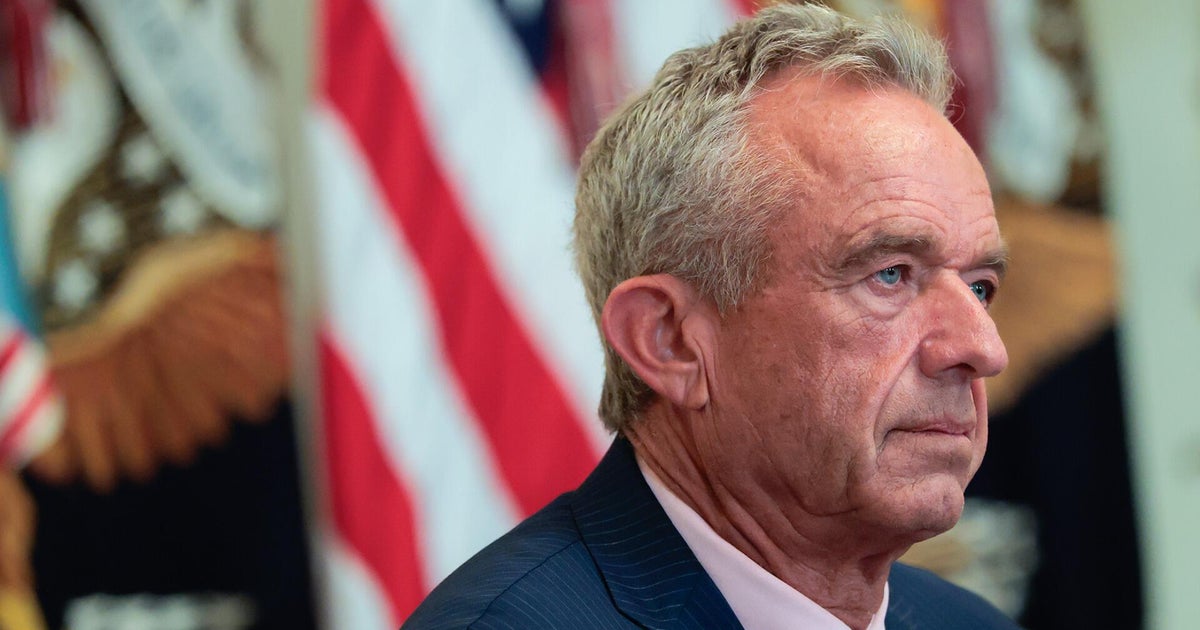Health and Human Services Secretary Robert F. Kennedy Jr. has made a significant and controversial decision to put a stop to nearly half a billion dollars in funding earmarked for the development of vaccines using mRNA technology, a method that was pivotal in the swift creation of vaccines during the COVID-19 pandemic. This decision, as reported by Dr. Jon LaPook, reflects Kennedy’s well-documented skepticism of the safety and efficacy of mRNA vaccine technology despite its widespread endorsement and use in public health emergencies.
The move to halt the funding raises numerous questions about the future of vaccine development and public health strategy in the United States. mRNA technology, short for messenger RNA, has been a breakthrough in the field of medical science, primarily because it allows for rapid development of vaccines to respond more swiftly than traditional methods to emerging health threats. The technology essentially teaches our cells how to make a protein that will trigger an immune response inside our bodies. That immune response, which produces antibodies, is what protects us from getting infected if the real virus enters our bodies.
The decision to cut funding for mRNA vaccine development comes at a time when public health experts and the global scientific community have largely upheld the technology as a game-changer in fighting infectious diseases. Notably, vaccines developed using mRNA technology were among the first to be authorized for emergency use by the FDA to combat the COVID-19 pandemic, and they have been administered to millions of people worldwide, significantly reducing the rates of infection, hospitalization, and death.
Secretary Kennedy, who took office amidst much controversy given his prior outspokenness against various vaccine technologies, has argued that the decision to halt funding is based on a need for more comprehensive research into the long-term effects of mRNA vaccines. Critics, however, see this move as a step backwards that could potentially hinder the nation’s ability to respond to future health crises swiftly and effectively.
The implications of this funding halt extend beyond the borders of the United States. Developing countries, in particular, where healthcare systems are less equipped to handle large-scale health crises, were looking towards mRNA technology as a critical tool in their health arsenals. The withdrawal of funding could thus have global consequences, affecting international health collaborations and vaccine access disparity issues.
Advocates for continuous investment in mRNA technology argue that cutting off funding could also stifle innovation and prevent the exploration of potentially groundbreaking advances in other areas of medicine beyond vaccines, such as in the treatment of cancer, heart diseases, and genetic disorders, where mRNA technology holds substantial promise.
In his report, Dr. Jon LaPook highlights how the decision has stirred a significant amount of unrest within the scientific community. Many experts fear this could lead to a situation where the U.S. falls behind other countries in the race for vaccine development, notably at a time when vaccine diplomacy plays a crucial role in geopolitical strategies.
Despite the widespread criticism, some support for Kennedy’s decision exists. Supporters argue that halting funding temporarily could provide an opportunity to address concerns around vaccine safety, particularly regarding long-term health outcomes, which could, in turn, strengthen public trust in vaccination programs. However, the prevailing view remains that the Secretary’s actions are regressive and not founded in scientific consensus.
As the news of this funding halt spreads, discussions and debates continue to surface across various platforms, from scientific symposiums to social media discussions, reflecting the broad spectrum of opinions that exist on this issue. Political analysts suggest that Kennedy’s decision might have broader political implications as well, influencing upcoming election cycles and shaping public health policy debates.
The controversy surrounding this decision underscores a fundamental tension within public health policy: the need for rapid innovation versus the imperative for thorough vetting and consensus. How the United States navigates this tension under Kennedy’s leadership will likely have long-lasting implications for its strategic capabilities in global health and may redefine its leadership role on the international stage.
In conclusion, the halt in funding for developing mRNA-based vaccines as directed by Secretary Robert F. Kennedy Jr. represents a pivotal moment in U.S. public health policy. This move, while aligning with Kennedy’s longstanding concerns regarding vaccine technologies, cuts against the grain of scientific consensus and bears the potential to significantly impact both national and global responses to future infectious disease outbreaks. As the country and the world grapple with the implications of this decision, the debate continues to evolve, reflecting deep divisions and the critical importance of science and innovation in public health.









